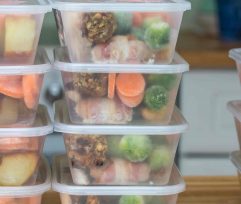Iron deficiency anemia is the most common type of anemia, which occurs when the body does not have enough of the mineral iron. Iron is needed to make hemoglobin, which is the protein responsible for carrying oxygen to your body’s tissues helping these tissues to function effectively. When you do not have enough iron in your blood stream, the rest of your body can’t get the right amount of oxygen that it needs. Some people go years with symptoms of iron deficiency without knowing the cause.
Who is at risk for iron deficiency anemia?
Iron deficiency anemia can occur in both men and women, at any age, and of any ethnicity. Those who are at greater risk for iron deficiency anemia include:
- Pregnant women
- Women of childbearing age
- Those with poor diets
- Infants and children that are born prematurely or are experiencing a growth spurt
- Those who donate blood often
- Vegetarians that do not replace meat with foods rich in iron
Symptoms
Some people do not realize they have iron anemia until they get blood tested, as the symptoms can be very mild at first. Symptoms can include:
- Weakness
- Fatigue
- Shortness of breath
- Pale skin
- Dizziness
- Strange cravings such as dirt or ice
- Cold hands and feet
- Brittle nails
- Headaches
- Swelling and/or soreness of the tongue
Treatment
Iron supplements – Iron tablets can help restore your iron levels in your body. Try and take iron tablets on an empty stomach, this will help your body to absorb them better. The tablets may need to be taken for several months, and they can cause constipation or stools that are black in color.
Diet – Making sure you incorporate foods that are high in iron will help to treat and prevent your iron deficiency. Foods such as nuts, dried fruits, dark green leafy vegetables, and red meat are some of the foods you can start eating throughout the day. Getting enough vitamin C will also help your body absorb iron, so taking your iron tablets with a source of Vitamin C can also be beneficial.
Foods High in Iron:
- Pumpkin and squash seeds
- Spinach
- Eggs
- Raisins
- Clams
- Shrimp
- Pork
- Chicken
- Beef
- Beans
Foods high in Vitamin C:
- Oranges
- Pineapples
- Grapefruits
- Broccoli
- Red and green bell peppers
- Leafy greens
- Brussels sprouts
Prevention
The best way to prevent iron deficiency is to eat foods that contain iron everyday. Incorporating a list of iron rich foods on your grocery list will help you remember to buy them. Pregnant women can prevent anemia by taking prenatal vitamins. Your doctor should also blood test you to see if you are anemic, and if you are you will take a higher dose iron pill.
If you have been dealing with symptoms such as the ones noted above it may be time to go check in with your doctor. Instead of waiting and hoping your symptoms go away, the best thing you can do is get answers to your questions and visit your doctor to see if you have an iron deficiency.




